Along with Challenges, Remote Semester Brings Unexpected Rewards
As we approach the middle of Berklee’s first remote semester, a handful of upper-semester Berklee students recently reflected on their time off campus, taking stock of how their relationship to their music has changed while learning remotely.
Almost all of the students interviewed said that adapting to their new circumstances has required flexibility, and that they miss performing with their classmates, but that there have been marked upsides to studying remotely, especially when it comes to developing new skills. This semester has pushed them to improve their recording and production skills, which they feel will be valuable in a post-pandemic world. But the isolation also brought about an unexpected benefit; it slowed them down and gave them space to go deeper into their art. Below is an edited version of those observations.
Andres Guerra

Andres Guerra
Major: Performance (guitar(Opens in a new window)) and film scoring, seventh semester
Hometown: Caracas, Venezuela; currently studying from Boston
What projects have you been working on this semester?
I guess the good thing about being a classical guitarist is that most of my work is solo. So with all this time at home, I’ve been able to just experiment, even record. I’m doing a couple of projects with a singer; I’m producing these tracks just overdubbing guitar tracks. I was very interested in expanding what classical guitar is supposed to fit into.
How has the experience of studying remotely been for you?
It’s helped me refocus on what I would like to eventually do after graduating. At this point, I’ve been studying so many different things and I have so many different interests that sometimes it’s a bit too all over the place.
The circumstances just pushed me to look for ways to create, but also I’m not as contaminated. If I were on campus, with everything that’s going on...I just had so much to do. But now it’s like I’m forced to look for both creative ways to motivate myself and to make music. So in the end, I feel like that also makes my real aspirations come through.
Looking at a class on a screen is never going to be the same as being there. I got to start to question why I’m doing the work. There should be something that should inspire me. So it makes me dig deep within myself and start to think about [the fact] that right now [I’m] doing this for school, but this is also [my] life, and [I’m] trying to go out there and have a career.
What about learning remotely has surprised you?
It’s a lot better than the spring, because, of course, it was an impromptu thing that happened and everyone was adapting to change very quickly. But this semester, in general I feel like most [teachers] have found a way to make it work.
Camila Cortina Bello(Opens in a new window)

Camila Cortina Bello
Major: Performance (piano(Opens in a new window)) and jazz composition with a minor in music production, seventh semester
Hometown: Havana, Cuba; currently studying from Boston
What projects have you been working on this semester?
I started this semester in the Berklee Global Jazz Institute(Opens in a new window) and it’s been really fun, very enlightening. Right now I have 14 classes. I have a video on the Monterey Jazz Festival coming out; I was playing for that and I was a composer. It was one of those online collaborations. Also, on November 18 we have a collaboration with Paquito D’Rivera, a very important saxophonist from Cuba.
After that, the Berklee Jazz Orchestra is recording one of my charts for big band. It’s already fully recorded; now we are in postproduction [to premiere December 7]. That has been very challenging because it’s a 17-piece ensemble, all online. But it’s amazing how much effort everybody is making and how much energy is put into recording music and to keep things flowing regardless of the circumstances.
How has the experience of studying remotely been for you?
It’s very intense. Because I wanted to progress to my master’s as fast as I could...I’ve been taking a lot of classes. This semester, even the classes that normally won’t leave you any homework, those are leaving assignments. There are weeks I end up with five recordings. In a recording, if you mess up, everybody knows about it. You can come back to it, so you have to make sure your performance is 100 percent there.
What about learning remotely has surprised you?
It is surprising to me how much can be done if there is a will from students and teachers. In my case, remote learning has been very positive. The classes are recorded and one can go back to them any time to revise the material. The downside is the practice of playing in an ensemble. However, the fact that we are recording all the time has given us an opportunity to master other areas of our musical knowledge (the tech side) and is helping us to be more accurate with our playing.
Ella-Jane Sharpe(Opens in a new window)
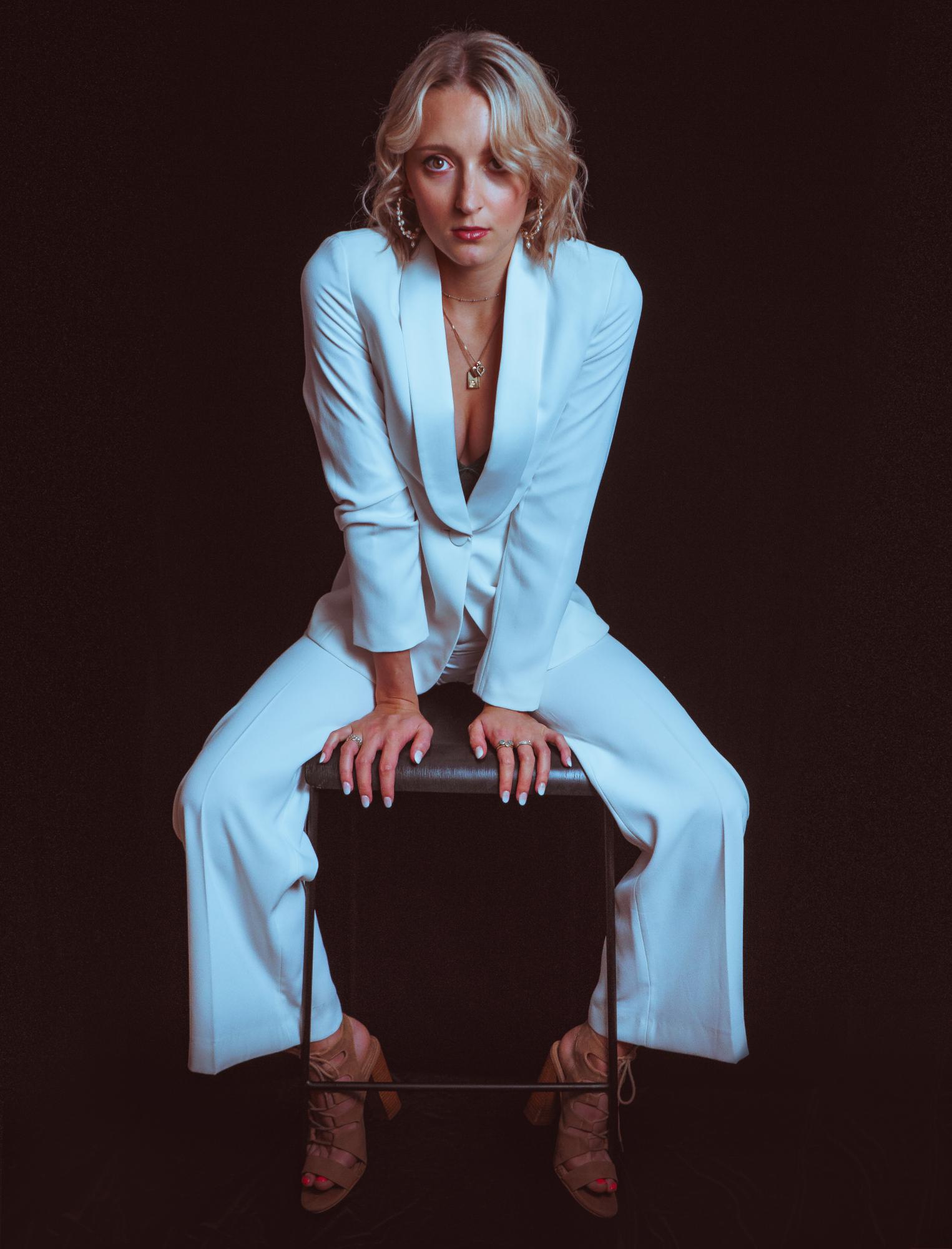
Ella-Jane Sharpe
Major: Performance (voice(Opens in a new window)), sixth semester
Hometown: Sydney, Australia; currently studying from Boston
What projects have you been working on this semester?
My most recent project has been the filming of my first professionally shot music video in Brooklyn [in] October. I created a crowdfunding campaign that raised over $3,000 towards the making of the video. It was absolutely incredible to see the creative people of New York City coming together with almost no payment just to be a part of this experience. The video will be released early next year with my next original song, “The Truth.”
My #BerkleeAnywhere concert(Opens in a new window) [featured] a mix of covers and original songs. I filmed it last week. These sorts of opportunities are what keep me going throughout these times.
How has the experience of studying remotely been for you?
It was without a doubt an adjustment, and one that I found difficult to comprehend for the first month or so, primarily because my Berklee experience consisted of many extracurricular activities.
Throughout the quarantine period, myself and Emanuel Keller, my producer and partner, have had the opportunity to record a number of original songs in our home studio. This was something that I wouldn’t have been able to do without the reality of this pandemic. Before the pandemic, whilst I was constantly performing, collaborating, and doing full-time studies, I was not able to devote as much time to my original music. This has been a great reflection of mine over the past few months and has made me realize how important my own material and creative content is as an artist.
Eric Wesling
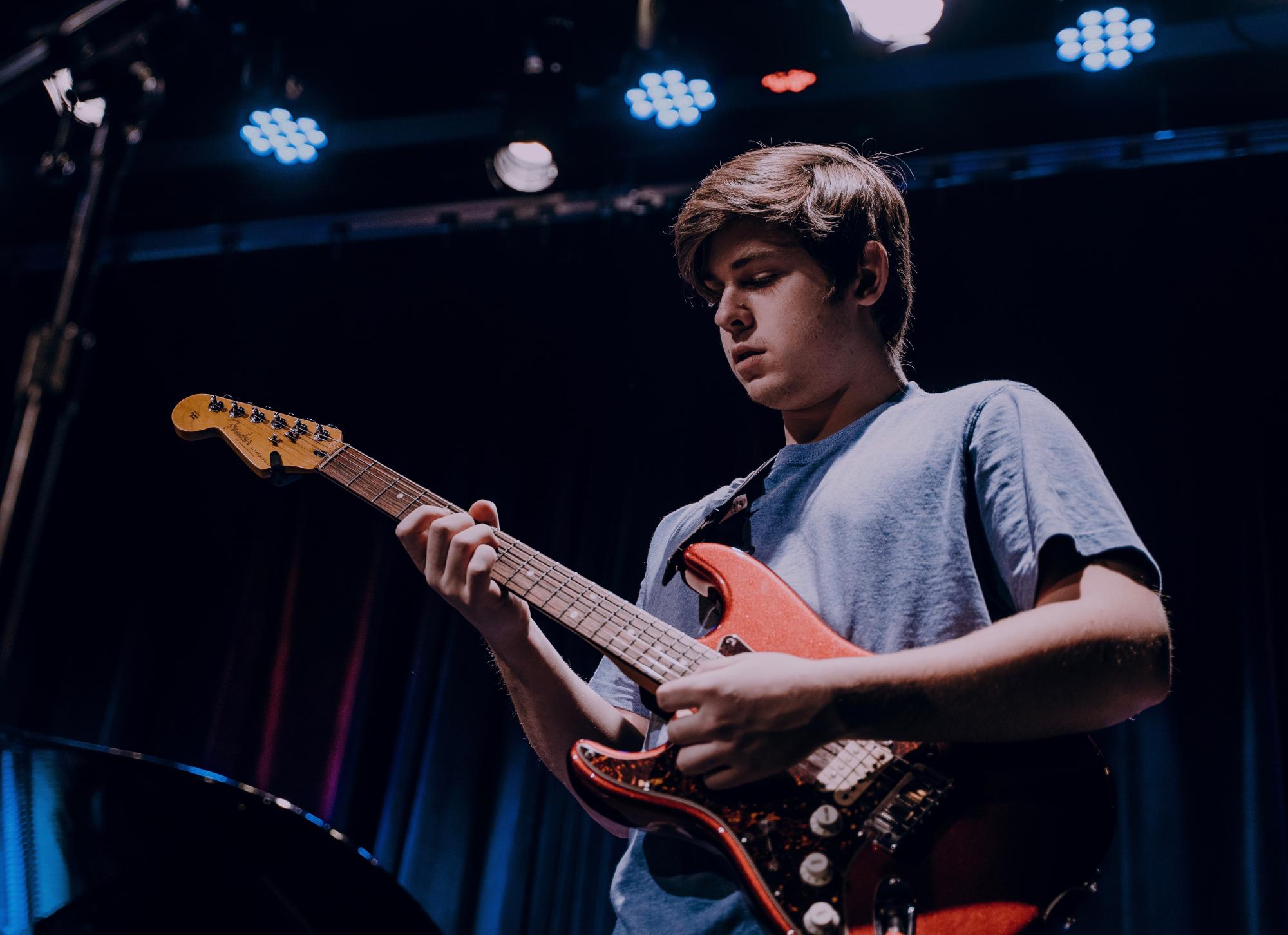
Eric Wesling
Major: Performance (guitar(Opens in a new window)), seventh semester
Hometown: San Diego, California; currently studying from Boston
What projects have you been working on this semester?
I’ve been really getting into classical guitar. Once quarantine happened, I really got into it just because you don’t need a band to practice it. So that was really nice; I could just be in my room all day and practice classical guitar.
[Quarantine] took me in a direction that I had no idea that I was going to take. If you [told] me a year ago that I was going to be studying classical guitar seriously, I would have been like, "Uh, what?"
And I’ve also been working on video editing and making videos. And it’s opened up opportunities for me. I recently started editing videos for a website called Mike’s Master Classes.
How has the experience of studying remotely been for you?
It’s been interesting because usually in classes when you have assignments and stuff, you just play them in front of your teacher and sometimes it’s not your best representation of your project. But I guess one advantage of being online is that you can take the time to make the projects sound more how you want them.
I also took [quarantine] to read a lot. I was reading a lot of books about theory and harmony that I normally wouldn’t have had the time to sit down and do.
What about learning remotely has surprised you?
I thought I was going to learn less because there was a connection missing with [not] being in a classroom. One thing I’ve noticed is that, if anything, I’ve been more determined to learn more because I have so much more time to be by myself and do work. It’s a little bit more relaxing, not having to get up and go to the T and do all of that stuff—which I do miss sometimes—but it’s really allowed me to work at my own pace and not rush certain things. It’s definitely allowed me to really dive into what I really wanted to do as opposed to running around figuring out what I’m supposed to do.
Harold Charon
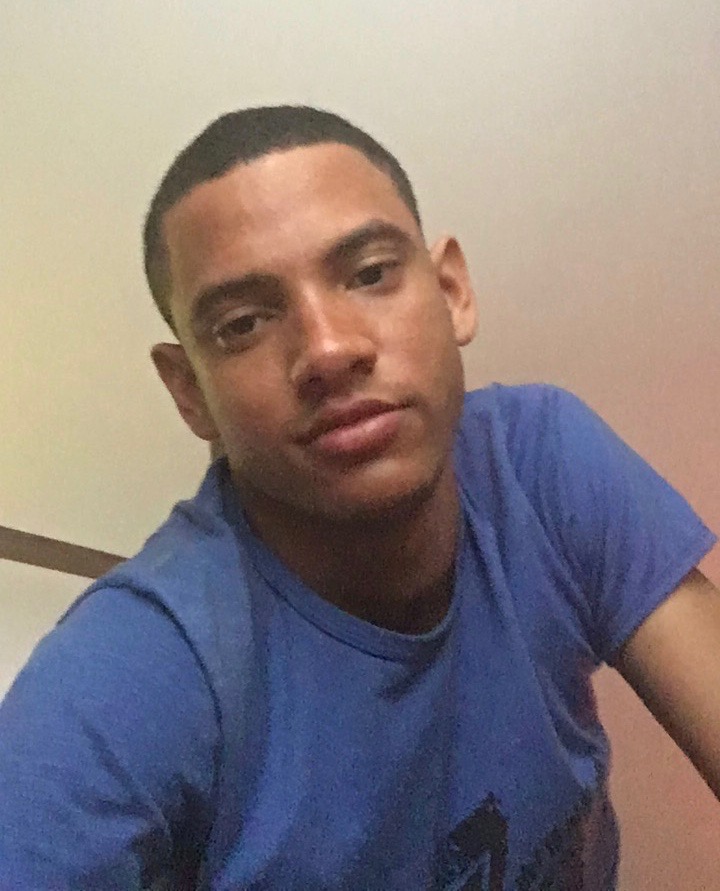
Harold Charon
Major: Performance (piano(Opens in a new window)) and jazz composition, sixth semester
Hometown: Havana, Cuba; currently studying from Virginia
What projects have you been working on this semester?
Sometimes I think the hours in a day are not enough for all that I have to work on. I have been working on my big-bands projects, and my challenge for this semester is to try to organize and create an idea while not seated at the piano, so that I can be more focused on the melody and I can look for richer ideas for the other instruments, too.
On the performance side, I have been listening and transcribing famous piano players such as Hank Jones, Sony Clark, Monk, and Bill Evans, trying to apply their ideas into one tune. I think this is great because it helps me to sound different.
How has the experience of studying remotely been for you?
As strange as this could sound, due to the pandemic I have been able to do things I never thought I could do before, including the possibility of recording piano tracks on Logic for my own purposes [and] for some friends and for the Voice Department, too.
What about learning remotely has surprised you?
I think remote classes have been better than I thought they would be. Everyone is doing their best in these hard times; it is up to us to make it better.
This semester I was selected to receive a private lesson with Billy Childs. It was a huge surprise for me when I received that opportunity. Every piece of advice he gives me is a new way to reach new levels and be more professional as a musician.
Lolivone de la Rosa(Opens in a new window)
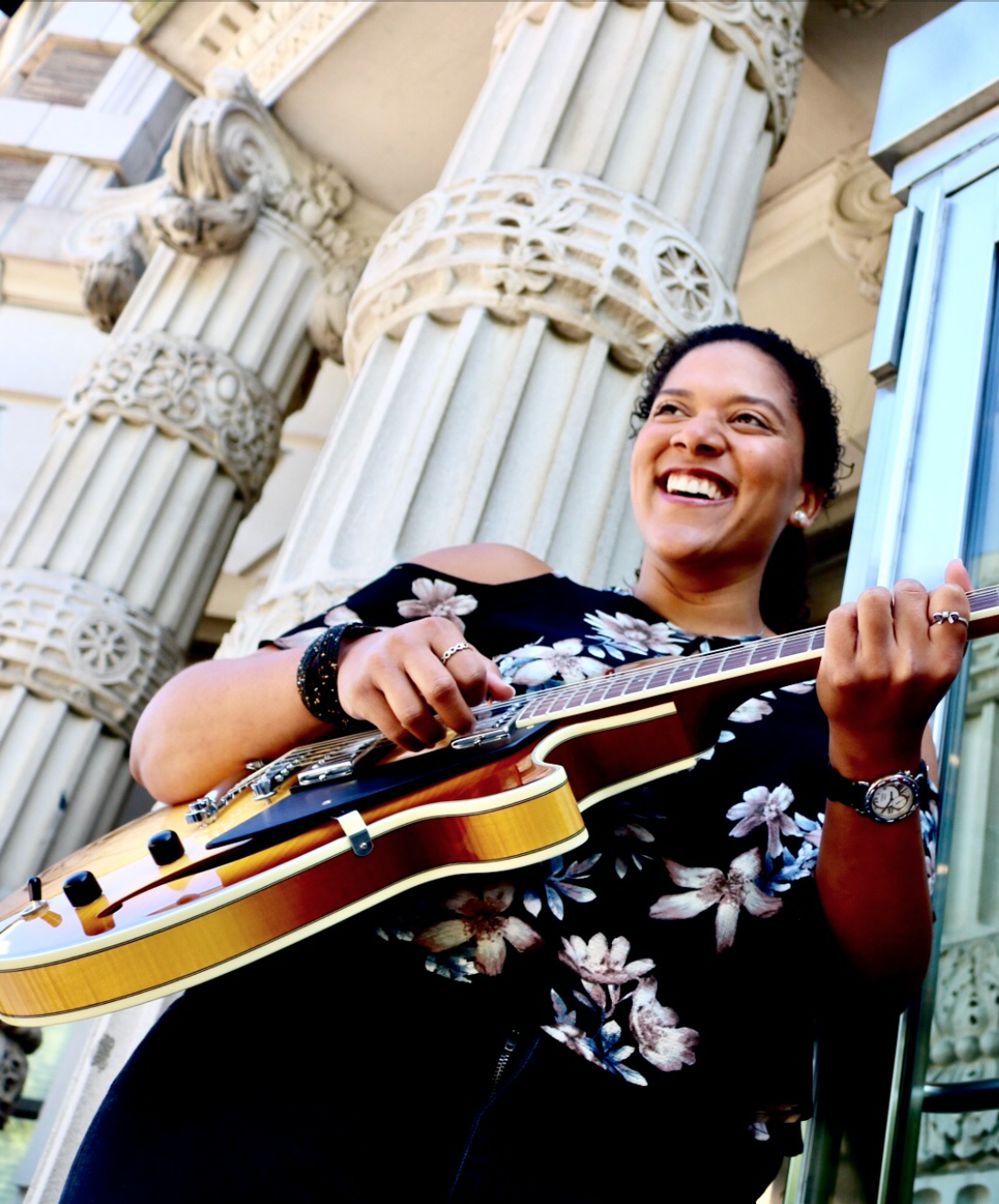
Lolivone de la Rosa
Major: Performance (guitar(Opens in a new window)) and contemporary writing and production, eighth semester
Hometown: San Juan, Puerto Rico; currently studying from San Juan
What projects have you been working on this semester?
I’m currently writing a series of guitar studies and producing a Brazilian music EP with some of my favorite musicians, which I expect will be released [in] early 2021. I produced and released my first single, “Resilient Terrace,” recorded completely remotely by the band, which can be found on all streaming platforms. I also released my first guitar etude and wrote my first piece for an orchestra. Those are achievements I am very proud of. Also, I have been able to connect with artists such as Wayne Shorter, Mike Stern, and Dianne Reeves, among other greats, via master classes.
How has the experience of studying remotely been for you?
Studying remotely has brought challenges that have forced me to grow as a musician and as a person, building resilience. I have had to upgrade my home studio, invest in gear, go in-depth in many topics like mixing to be able to be self-sufficient at a competent level. I enjoy all the time I have had to concentrate on my music without distractions.
On a personal level, I have had to learn the importance of taking care of myself during these times to make sure I do not burn out sitting in front of my computer. I try to fit exercising, taking a walk at the beach, etc., into my schedule.
What about learning remotely has surprised you?
I am surprised how humans are able to adapt fairly quickly to new softwares and systems (the whole world has had to rely on new resources like Zoom) to be able to defy daily obstacles presented after the pandemic. It amazes me to see how technology helps us stay connected.
Martin Julio Guas(Opens in a new window)
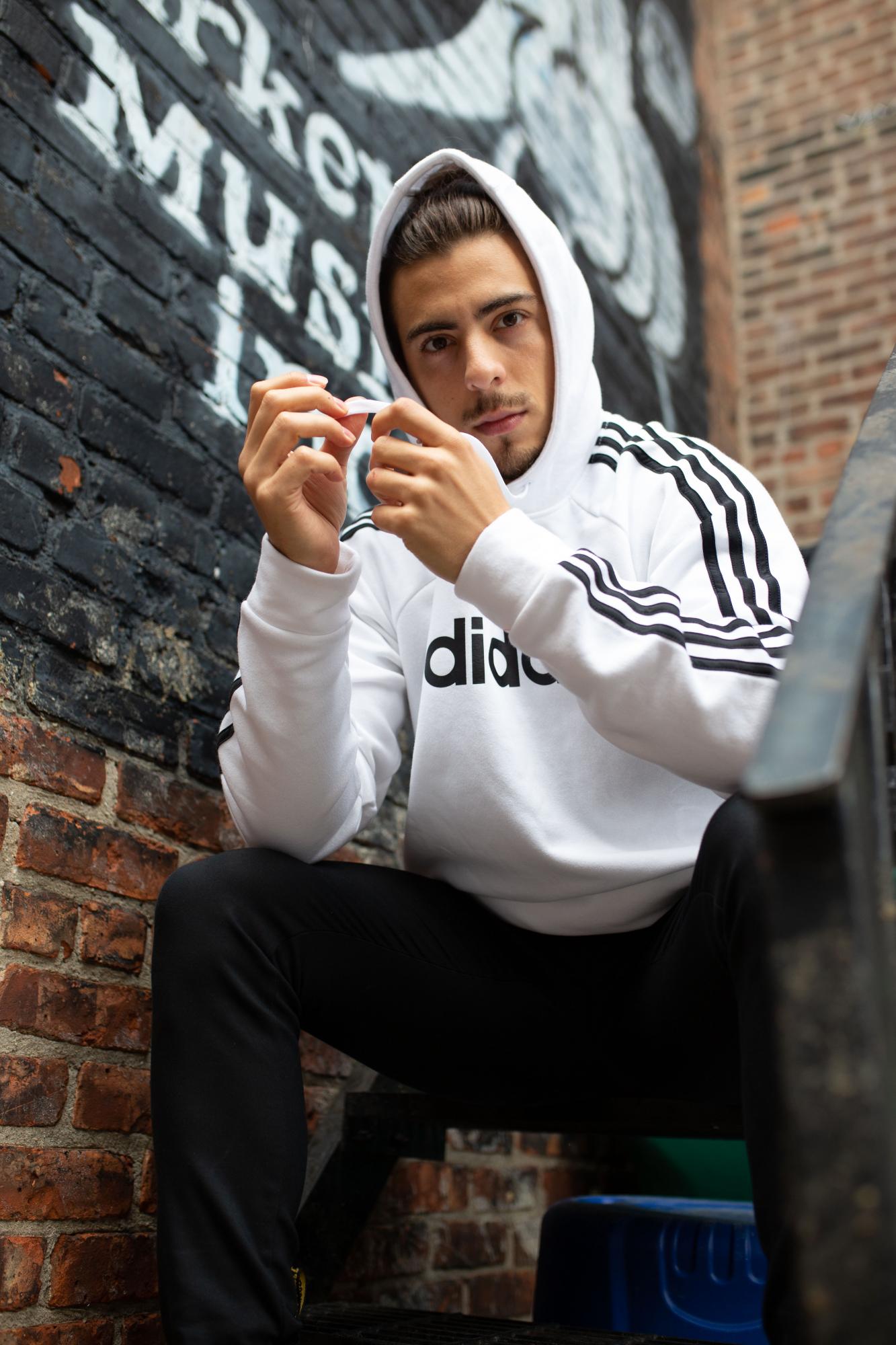
Martin Julio Guas
Major: Performance (voice(Opens in a new window)) with a minor in effortless mastery, eighth semester
Hometown: La Plata, Argentina; currently studying from Boston
What projects have you been working on this semester?
I have been working on my new video and single, called "CREO(Opens in a new window)," that I just released on YouTube(Opens in a new window). It is a very special song for me because it expresses not only the resilience behind these challenging times but the hope for a better humankind, a stronger community that understands each other's needs and creates the empathy to stop dividing us from each other.
I found time to dedicate myself fully to producing and releasing my music. For a performer in today’s world, we had no other choice than to compose, write, and release music through streaming platforms. Gigs are cancelled everywhere, so I think finding the discipline to write and produce music kept me on track in these challenging times, where each one of us feels that uncertainty about what is coming next. We can just focus on the day-to-day.
How has the experience of studying remotely been for you?
It has been very hard to adapt to remote learning. A lot of people have made uncountable efforts to make it smoother and easier for everyone but there is this limitation: the feeling of interacting with another human being in person is something that will never be the same, no matter how much technology advances.
What about learning remotely has surprised you?
It surprised me how fast the faculty adapted to it as well as the hard work that everyone in the Berklee community did to bring all the people together and find opportunities even in not favorable circumstances. Resilience has been a great word to define all this process.




